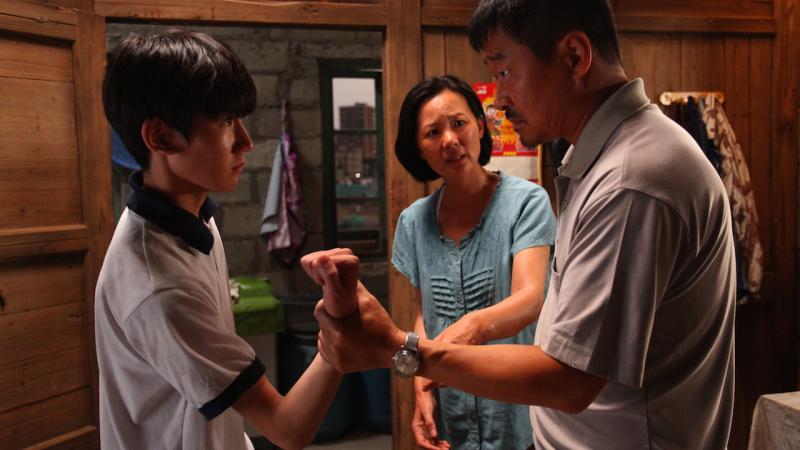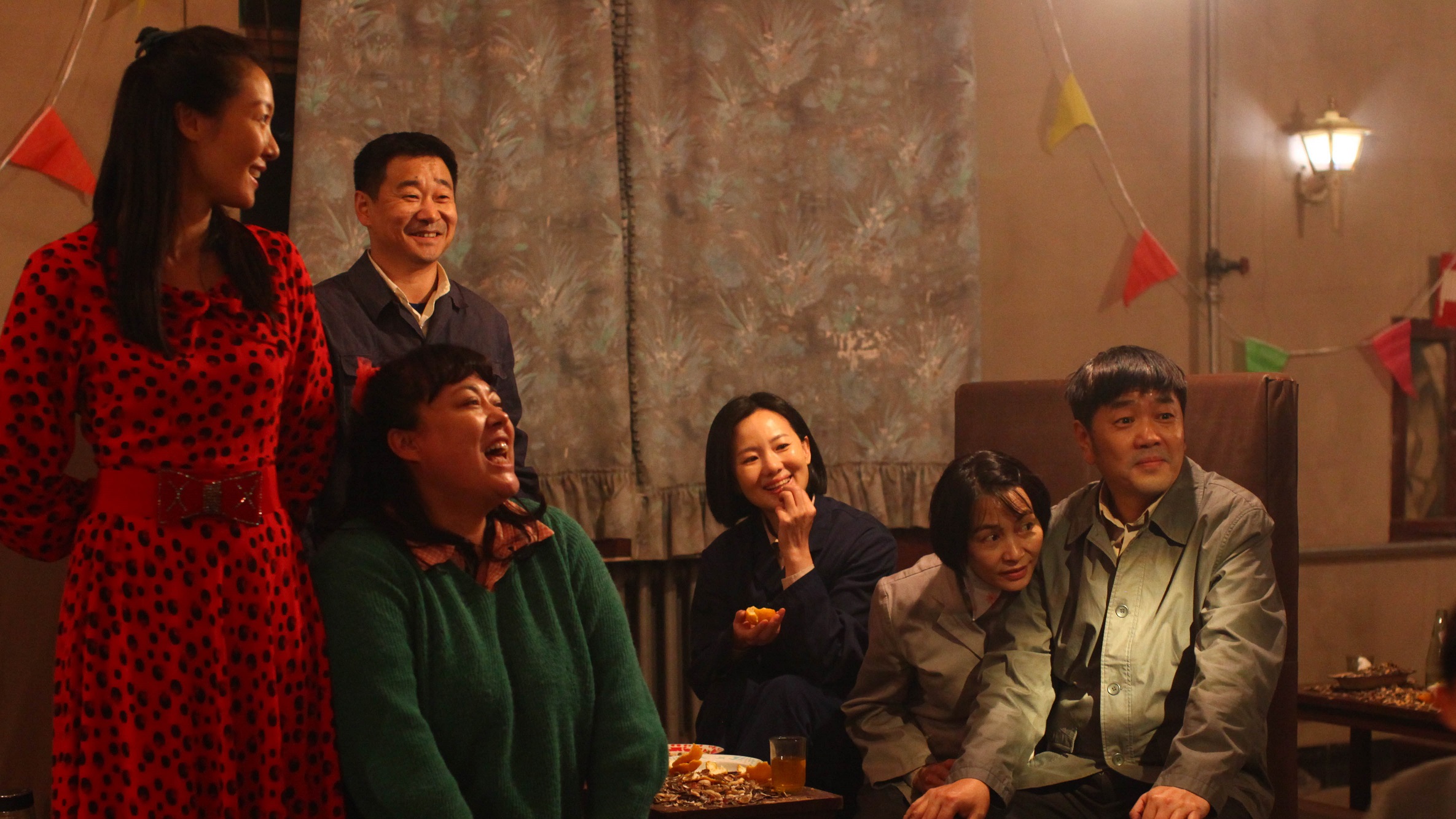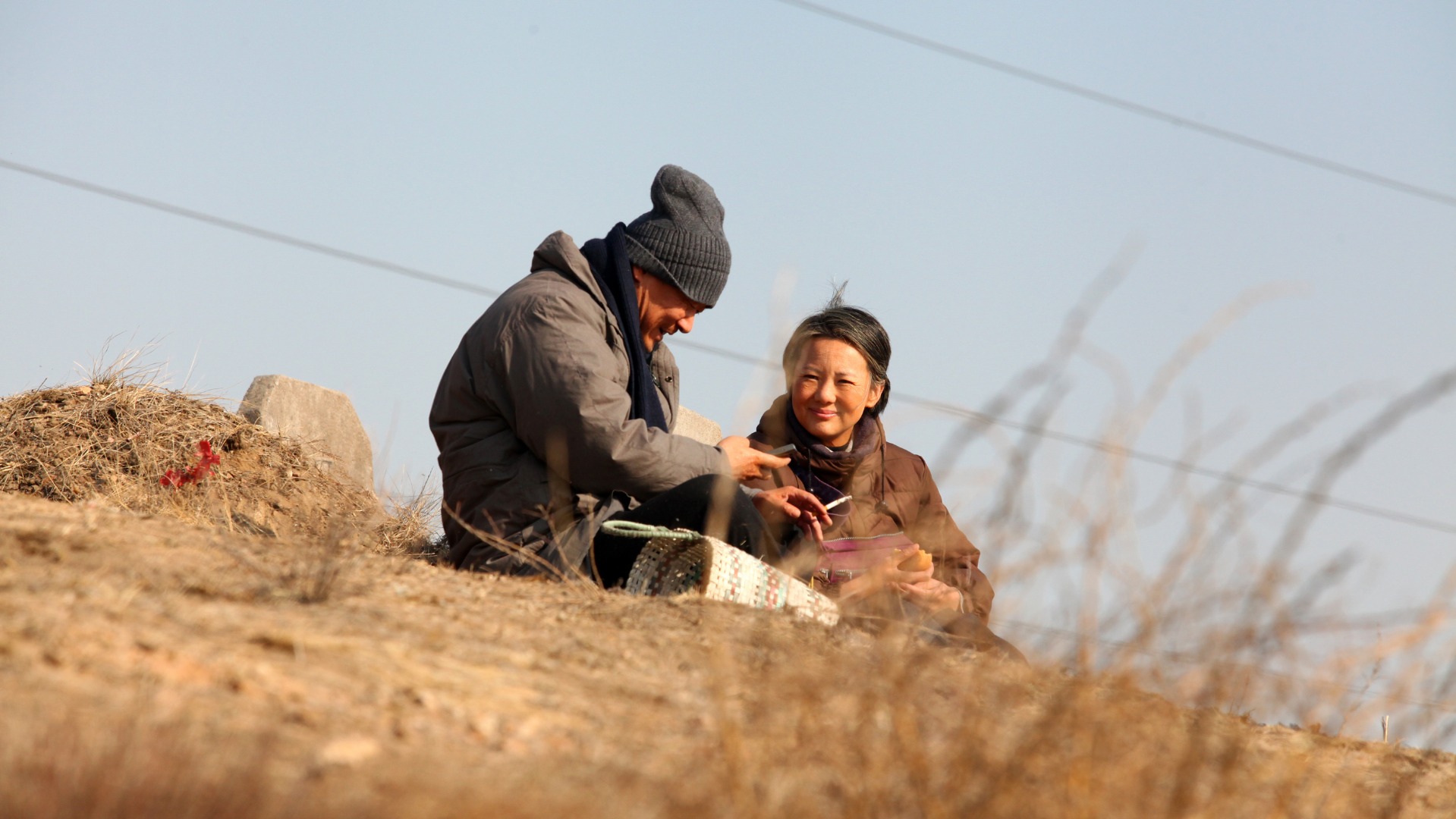So Long, My Son review - an intimate Chinese epic | reviews, news & interviews
So Long, My Son review - an intimate Chinese epic
So Long, My Son review - an intimate Chinese epic
Four decades of loss and love, scarred by the state

Two young boys play by the water. Soon, one is dead. This enigmatic tragedy is the core of a four-decade Chinese saga of grief, guilt and love, at once intimately personal and scarred by the state’s grinding turns.
Mao’s Cultural Revolution is recalled. But it’s the Eighties’ One Child Policy which haunts this story. Liyun and Yaojun are best friends with fellow factory-workers Haiyan (Ai Liya) and Yingming (Xu Cheng), with their respective sons Xingxing and Hao even born on the same day. But Haiyan uses her petty power in the Communist Party to force Liyun’s abortion of a second child. Then it’s Hao who is involved with Xingxing’s drowning.
As we gradually understand, this has sent Liyun and Yaojun tumbling away to the provincial town where we first encounter them, raising a resentful, adopted teenage substitute also named Xingxing. Youjun numbs and jolts himself with baijiu shots, and runs a repair shop out among the sleepy fishing nets. It’s a place to wash up. “We like it,” he says stoically. “We know no one...nothing. Not even their dialect.” And to Liyun: “Time stopped for us long ago. Now we’re just waiting to grow old.”
 Wang has endured state re-education, and portrays lives where such punishment is one barely remarked fact among many. Hushed conversations as kettles boil dodge denunciation, and apartment dance parties mix joy with fear of execution. Hollow bureaucratic language remains constant with private enterprise’s arrival (“There’s no shame in redundancy, comrades...no more iron rice bowl!” – the latter a bitter boast after the millions Mao starved). Back in the city, Haiyan’s Party prominence morphs into entrepreneurial wealth, and pretty young Moli (Qi Xi, pictured above left) heads to the States, after a bittersweet hotel reunion with former mentor Youjun. Our ageing couple’s old apartment becomes a dusty relic amid thrusting high-rises, and hospitals gleam with prosperity they missed.
Wang has endured state re-education, and portrays lives where such punishment is one barely remarked fact among many. Hushed conversations as kettles boil dodge denunciation, and apartment dance parties mix joy with fear of execution. Hollow bureaucratic language remains constant with private enterprise’s arrival (“There’s no shame in redundancy, comrades...no more iron rice bowl!” – the latter a bitter boast after the millions Mao starved). Back in the city, Haiyan’s Party prominence morphs into entrepreneurial wealth, and pretty young Moli (Qi Xi, pictured above left) heads to the States, after a bittersweet hotel reunion with former mentor Youjun. Our ageing couple’s old apartment becomes a dusty relic amid thrusting high-rises, and hospitals gleam with prosperity they missed.
 Yasujiro Ozu’s discarded parents in Tokyo Story (1953) come to mind. Youjun’s oaken worker’s strength shoulders the invisible burden of dead Xingxing and his miserable, delinquent substitute, and his uselessness as successive children are snatched away. Liyun believes he’s not bright, and his face is mostly a craggy mask. Softer beauty first pierces its suppressed pain and rage in Moli’s youthful company (she, seeming liberated, also suffers regret). Middle-aged Liyun meanwhile moves distractedly, as if something has been permanently misplaced. Though present and future mingle too, tiles on Xang’s smooth mosaic, the past weighs this couple down. Punk-haired teenagers, Xang’s more usual subject, mope in their modern path, no happier. Yet over time, Youjun and Liyun reach out to hold each other.
Yasujiro Ozu’s discarded parents in Tokyo Story (1953) come to mind. Youjun’s oaken worker’s strength shoulders the invisible burden of dead Xingxing and his miserable, delinquent substitute, and his uselessness as successive children are snatched away. Liyun believes he’s not bright, and his face is mostly a craggy mask. Softer beauty first pierces its suppressed pain and rage in Moli’s youthful company (she, seeming liberated, also suffers regret). Middle-aged Liyun meanwhile moves distractedly, as if something has been permanently misplaced. Though present and future mingle too, tiles on Xang’s smooth mosaic, the past weighs this couple down. Punk-haired teenagers, Xang’s more usual subject, mope in their modern path, no happier. Yet over time, Youjun and Liyun reach out to hold each other.
So Long, My Son’s three hours can be contemplatively still, in wide communal long-shots or lone close-ups, but never drag, thanks to black humour and copious drama. It’s a masterful social epic.
rating
Explore topics
Share this article
Add comment
The future of Arts Journalism
You can stop theartsdesk.com closing!
We urgently need financing to survive. Our fundraising drive has thus far raised £49,000 but we need to reach £100,000 or we will be forced to close. Please contribute here: https://gofund.me/c3f6033d
And if you can forward this information to anyone who might assist, we’d be grateful.

Subscribe to theartsdesk.com
Thank you for continuing to read our work on theartsdesk.com. For unlimited access to every article in its entirety, including our archive of more than 15,000 pieces, we're asking for £5 per month or £40 per year. We feel it's a very good deal, and hope you do too.
To take a subscription now simply click here.
And if you're looking for that extra gift for a friend or family member, why not treat them to a theartsdesk.com gift subscription?
more Film
 London Film Festival 2025 - crime, punishment, pop stars and shrinks
Daniel Craig investigates, Jodie Foster speaks French and Colin Farrell has a gambling habit
London Film Festival 2025 - crime, punishment, pop stars and shrinks
Daniel Craig investigates, Jodie Foster speaks French and Colin Farrell has a gambling habit
 I Swear review - taking stock of Tourette's
A sharp and moving tale of cuss-words and tics
I Swear review - taking stock of Tourette's
A sharp and moving tale of cuss-words and tics
 A House of Dynamite review - the final countdown
Kathryn Bigelow's cautionary tale sets the nuclear clock ticking again
A House of Dynamite review - the final countdown
Kathryn Bigelow's cautionary tale sets the nuclear clock ticking again
 theartsdesk Q&A: Idris Elba on playing a US President faced with a missile crisis in 'A House of Dynamite'
The star talks about Presidential decision-making when millions of lives are imperilled
theartsdesk Q&A: Idris Elba on playing a US President faced with a missile crisis in 'A House of Dynamite'
The star talks about Presidential decision-making when millions of lives are imperilled
 Urchin review - superb homeless drama
Frank Dillane gives a star-making turn in Harris Dickinson’s impressive directorial debut
Urchin review - superb homeless drama
Frank Dillane gives a star-making turn in Harris Dickinson’s impressive directorial debut
 Mr Blake at Your Service review - John Malkovich in unlikely role as an English butler
Weird comedy directed by novelist Gilles Legardinier
Mr Blake at Your Service review - John Malkovich in unlikely role as an English butler
Weird comedy directed by novelist Gilles Legardinier
 Don't Let's Go to the Dogs Tonight review - vivid adaptation of a memoir about a Rhodesian childhood
Embeth Davidtz delivers an impressive directing debut and an exceptional child star
Don't Let's Go to the Dogs Tonight review - vivid adaptation of a memoir about a Rhodesian childhood
Embeth Davidtz delivers an impressive directing debut and an exceptional child star
 One Battle After Another review - Paul Thomas Anderson satirises America's culture wars
Leonardo DiCaprio, Teyana Taylor, and Sean Penn star in a rollercoasting political thriller
One Battle After Another review - Paul Thomas Anderson satirises America's culture wars
Leonardo DiCaprio, Teyana Taylor, and Sean Penn star in a rollercoasting political thriller
 Steve review - educator in crisis
Cillian Murphy excels as a troubled headmaster working with delinquent boys
Steve review - educator in crisis
Cillian Murphy excels as a troubled headmaster working with delinquent boys
 Can I get a Witness? review - time to die before you get old
Ann Marie Fleming directs Sandra Oh in dystopian fantasy that fails to ignite
Can I get a Witness? review - time to die before you get old
Ann Marie Fleming directs Sandra Oh in dystopian fantasy that fails to ignite
 Happyend review - the kids are never alright
In this futuristic blackboard jungle everything is a bit too manicured
Happyend review - the kids are never alright
In this futuristic blackboard jungle everything is a bit too manicured

Comments
Well written review Nick.
Thank you for that nuanced
Thank you for that nuanced bit of info, RL...